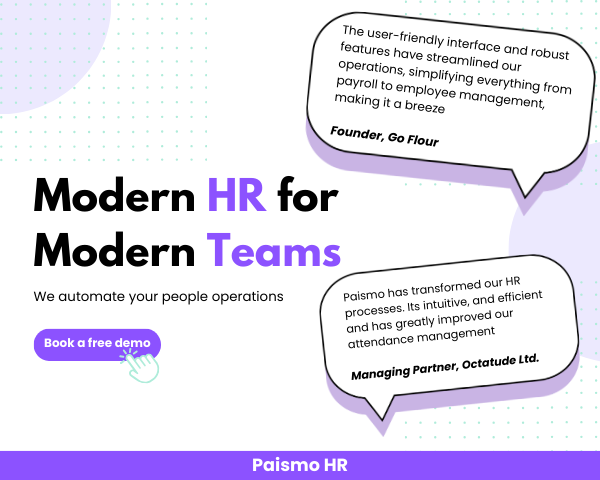What is an Agent of Record (AOR)?
An Agent of Record (AOR) is a licensed individual or agency legally authorized to represent a business or individual in all matters related to insurance coverage. The AOR acts as the official point of contact between the policyholder and the insurance provider, managing policies, claims, renewals, and compliance.
In HR and employee benefits management, companies appoint an AOR to streamline insurance-related tasks, especially for health, life, and workers' compensation coverage, ensuring they get expert representation while saving time and resources.
What Does an Agent of Record Do?
An AOR serves as a dedicated insurance liaison, taking responsibility for:
- Researching and selecting the best insurance plans for your team
- Negotiating policy terms and pricing with insurers
- Managing renewals, amendments, and compliance requirements
- Handling claims processing and insurer communication
- Offering expert advice tailored to your organization’s needs
In short, the AOR ensures your insurance programs are aligned with business goals, fully compliant, and efficiently managed.
Why Do Companies Appoint an AOR?
Organizations, especially small to mid-sized businesses, often choose an AOR to:
- Offload time-consuming insurance administration
- Gain access to expert insurance guidance
- Ensure better policy terms through professional negotiation
- Stay current with legal and regulatory changes
- Centralize policy management and claims handling
Typical services provided by an Agent of Record include:
1. Policy Management
AORs handle everything from choosing policies to renewing or updating them. This includes:
- Reviewing available coverage options
- Coordinating paperwork
- Adjusting policies to reflect organizational changes
- Ensuring ongoing compliance
2. Risk Assessment
An AOR evaluates your company’s risk exposure and recommends appropriate insurance strategies. They may audit your existing plans, suggest better coverage, or help align policies with changes in team size, locations, or payroll structures.
3. Claims Advocacy
If a claim is filed, your AOR acts as your advocate, handling communication with the insurance company, negotiating outcomes, and ensuring your interests are protected.
4. Compliance Tracking
Insurance laws and labor regulations are constantly changing. AORs monitor relevant legal updates and ensure your policies meet all federal, state, and local requirements, such as FMLA, COBRA, or travel insurance coverage.
5. Strategic Advice
Many businesses, especially growing startups, engage an AOR for part-time or on-demand guidance on coverage options, benefits structuring, and long-term insurance planning.
How Does the AOR Process Work?
The AOR appointment process typically takes 5–10 business days:
- Agreement Letter Issued: The new agent prepares an Agent of Record (AOR) letter with your company name, policy details, and effective date.
- Signed by the Client: You place the letter on your company letterhead, sign and date it, then return it.
- Sent to the Carrier: Your new agent forwards the signed AOR letter to the insurer.
- Carrier Confirmation: The insurer transfers servicing rights to the new AOR, unless a rescinding letter is submitted by the previous agent.
Once approved, the new AOR takes over all insurance-related responsibilities.
Benefits of Having an Agent of Record
Hiring an AOR offers several business advantages:
- Time Savings: Reduce administrative workload by outsourcing insurance tasks.
- Expert Representation: Benefit from the knowledge and industry relationships of a professional agent.
- Streamlined Claims Process: Let your AOR handle communications and negotiations.
- Customized Coverage: Tailor policies to your workforce size, risk profile, and compliance needs.
- Regulatory Confidence: Stay compliant with complex insurance and employment laws.
Potential Drawbacks of Using an AOR
Despite the benefits, appointing an AOR may carry some risks:
- Limited Policy Access: Agents with fewer insurer partnerships may offer a narrow range of options.
- Conflict of Interest: Some AORs may prioritize insurer relationships over client needs.
- Over-Reliance: Outsourcing too much can limit your team’s understanding of your own insurance landscape.
- Cost Concerns: For small businesses with simple insurance needs, the expense of hiring an AOR may outweigh the value.
To mitigate these risks, choose an AOR with a solid reputation, transparent fees, and a client-first approach.
Become a part of the Paismo community
Paismo is an HR software that can help simplify your HR operations. In today's dynamic economic environment, efficient HR and automated payroll management are no longer a luxury but a necessity. Paismo is a comprehensive solution that transforms traditional HR complexes into streamlined and automated workflows. Paismo and its paired biometric device integration can be used for your business to mark employee attendance and record their timesheets accurately.
Paismo simplifies your tasks with its core HRMS, timesheets, and attendance management, as well as biometric attendance, payroll automation, and leave management system.
Take the first step toward modernizing your HR and payroll processes and explore what Paismo can do for you. Book a demo with our sales team.










